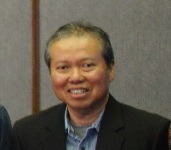This article relies largely or entirely on a single source .(April 2014) |

The Regional Science Association International (RSAI) is a cluster of scholarly societies whose members engage in regional science.
This article relies largely or entirely on a single source .(April 2014) |

The Regional Science Association International (RSAI) is a cluster of scholarly societies whose members engage in regional science.
In the late 1940s and the early 1950s, the economist Walter Isard worked to draw together a group of academics interested in analyzing regional (i.e., sub-national) development. These academics were drawn from a number of disciplines: economics, geography, city planning, political science and rural sociology. Naming their new approach regional science, they envisioned it as an interdisciplinary effort, one that would require unique theoretical concepts, methodological tools, and data. Because their effort was interdisciplinary, no existing academic organization brought the participants together; they therefore created their own organization, the Regional Science Association, which first met in December 1954. [1]
By 1961, the RSA had 960 members, and its first local "section", which organized conferences for regional scientists located in the western United States. The next section to form (in 1963) was in Japan, followed by sections throughout Europe, as well as in India, Argentina, and Brazil. In 1969, the Western section and the Japan section began to cooperate in holding a biennial Pacific Rim international conference. [2]
Gradually issues of coordination among the various sections were worked out, resulting in much the present structure by 1990. The Regional Science Association International (RSAI) now functions as the umbrella organization for three other organizations: the Pacific Regional Science Conference Organization, the North American Regional Science Council, and the European Regional Science Association. Each of these serve as the umbrella organization for a number of other organizations, as seen in the next section.
Regional Science Association International is the umbrella organization for all affiliated regional science associations:

The United Nations University (UNU) is the academic and research arm of the United Nations. Headquartered in Shibuya, Tokyo, Japan, with diplomatic status as a U.N. institution, its mission is to help resolve global issues related to human development and welfare through collaborative research and education.
Regional science is a field of the social sciences concerned with analytical approaches to problems that are specifically urban, rural, or regional. Topics in regional science include, but are not limited to location theory or spatial economics, location modeling, transportation, migration analysis, land use and urban development, interindustry analysis, environmental and ecological analysis, resource management, urban and regional policy analysis, geographical information systems, and spatial data analysis. In the broadest sense, any social science analysis that has a spatial dimension is embraced by regional scientists.
Area studies are interdisciplinary fields of research and scholarship pertaining to particular geographical, national/federal, or cultural regions. The term exists primarily as a general description for what are, in the practice of scholarship, many heterogeneous fields of research, encompassing both the social sciences and the humanities. Typical area study programs involve international relations, strategic studies, history, political science, political economy, cultural studies, languages, geography, literature, and other related disciplines. In contrast to cultural studies, area studies often include diaspora and emigration from the area.
Development studies is an interdisciplinary branch of social science. Development studies is offered as a specialized master's degree in a number of reputed universities around the world, such as the University of Cambridge, the London School of Economics and Political Science, King’s College London, the Institute of Development Studies at the University of Sussex, Oxford University, Harvard University, Balsillie School of International Affairs, Graduate Institute Geneva, Indian Institute of Technology Madras, SOAS London, Tata Institute of Social Sciences and University of Warwick, and less commonly, as an undergraduate degree, such as at the University of Sussex, University of Guelph, University of Toronto and McGill University. It has grown in popularity as a subject of study since the early 1990s, and has been most widely taught and researched in developing countries and countries with a colonial history, such as the UK, where the discipline originated. Students of development studies often choose careers in international organisations such as the United Nations, World Bank, non-governmental organisations (NGOs), media and journalism houses, private sector development consultancy firms, corporate social responsibility (CSR) bodies and research centers.
The International Social Science Council (ISSC) was an international non-governmental organization promoting the social sciences, including the economic and behavioural sciences. It was founded in Paris, France between 6 and 9 October 1952, under the auspices of UNESCO, following a Resolution at the 6th UNESCO General Conference in 1951. It was adopted on 19 September 1972, completed and revised on 14 November 1979, and underwent multiple revisions on 17 December 1985, 3 December 1992, 27 November 1998, 8 November 2006, and finally 10 December 2010. ISSC is registered in accordance with French Law.

The Academia Europaea is a pan-European Academy of Humanities, Letters, Law, and Sciences. The Academia was founded in 1988 as a functioning Europe-wide Academy that encompasses all fields of scholarly inquiry. It acts as co-ordinator of European interests in national research agencies.
The Association for Business Communication (ABC) is a learned society for the field of business communication. The organization is interdisciplinary, with members belonging to academic fields such as management, marketing, English, foreign languages, speech, communication, linguistics, and information systems. Additionally the organization brings together university academicians, business practitioners, and business consultants.
Latin American studies (LAS) is an academic and research field associated with the study of Latin America. The interdisciplinary study is a subfield of area studies, and can be composed of numerous disciplines such as economics, sociology, history, international relations, political science, geography, gender studies, and literature.

The Association for Slavic, East European, and Eurasian Studies (ASEEES) is a scholarly society dedicated to the advancement of knowledge about the former Soviet Union and Eastern and Central Europe. The ASEEES supports teaching, research, and publication relating to the peoples and territories within this area.
Scholars at Risk (SAR) is a U.S.-based international network of academic institutions organized to support and defend the principles of academic freedom and to defend the human rights of scholars around the world. Network membership includes over 530 higher education institutions in 42 countries.
Walter Isard was a prominent American economist, the principal founder of the discipline of regional science, as well as one of the main founders of the discipline of peace studies and Peace economics.
The Group on Earth Observations (GEO) coordinates international efforts to build a Global Earth Observation System of Systems (GEOSS). It links existing and planned Earth observation systems and supports the development of new ones in cases of perceived gaps in the supply of environment-related information. It aims to construct a global public infrastructure for Earth observations consisting in a flexible and distributed network of systems and content providers.

The Consortium for North American Higher Education Collaboration (CONAHEC) is a non-profit membership organization which advises and connects higher education institutions interested in establishing or strengthening academic collaborative programs in the North American region.

The World Council of Comparative Education Societies (WCCES) is an international organization of comparative education societies created in 1970 in Ottawa, Canada. It is organized as an NGO in operational relations with UNESCO. The current president is N‘Dri Thérèse Assié-Lumumba.
The University of Washington Press is an American academic publishing house. The organization is a division of the University of Washington, based in Seattle. Although the division functions autonomously, they have worked to assist the University's efforts in support of the Burke Museum of Natural History and Culture, the Henry M. Jackson School of International Studies, and the Center for Innovation and Research in Graduate Education. Since 1915, they have published the works of first-time writers, including students, poets, and artists, along with authors known throughout the world for their work in the humanities, arts, and sciences.
The International Society for Third-Sector Research (ISTR), founded in 1992, is an international association that is dedicated to promoting research and education on civil society, philanthropy, and the nongovernmental sector. ISTR works to unite scholars and researchers to exchange ideas and advance knowledge on both a local and international scale, regarding the third sector, human welfare and international development.

Andrés Rodríguez-Pose is a professor of economic geography at the London School of Economics and Political Science and former head of its Department of Geography and Environment (2006-2009). He was president of the Regional Science Association International (RSAI) (2015-2017). He has served as Vice-President of the RSAI (2014) and as Vice-President (2012-2013) and Secretary (2001-2005) of the European Regional Science Association. He is an editor of the international peer-reviewed academic journal Economic Geography and one of the editors-in-chief of the Journal of Geographical Systems. Between 1999 and 2016 he was an editor of Environment and Planning C, acting as joint chief-editor from 2008 to 2016.
The Regional Studies Association is a learned society with an international network of academics, policy makers and practitioner members. It was founded in 1965, following the foundation of the Regional Science Association in the USA and International Centre for Regional Planning and Development in the UK. Regional studies is a field of interdisciplinary research focusing on the sub-national, such as city and regional development, urbanisation, economic inequalities and migration issues. The research not only crosses the boundaries of countries, but also the disciplines of geography, economics, sociology and planning. The Association is registered with the UK Charity Commission and Companies House. The Association organises international events and various micro-grant awards.

Budy P. Resosudarmo is a professor in development and environmental economics at the Arndt-Corden Department of Economics, Crawford School of Public Policy, at the Australian National University (ANU). He is the deputy director of the Poverty and Inequality Research Centre, the education director of the Crawford School and a researcher at the ANU Indonesia Project.